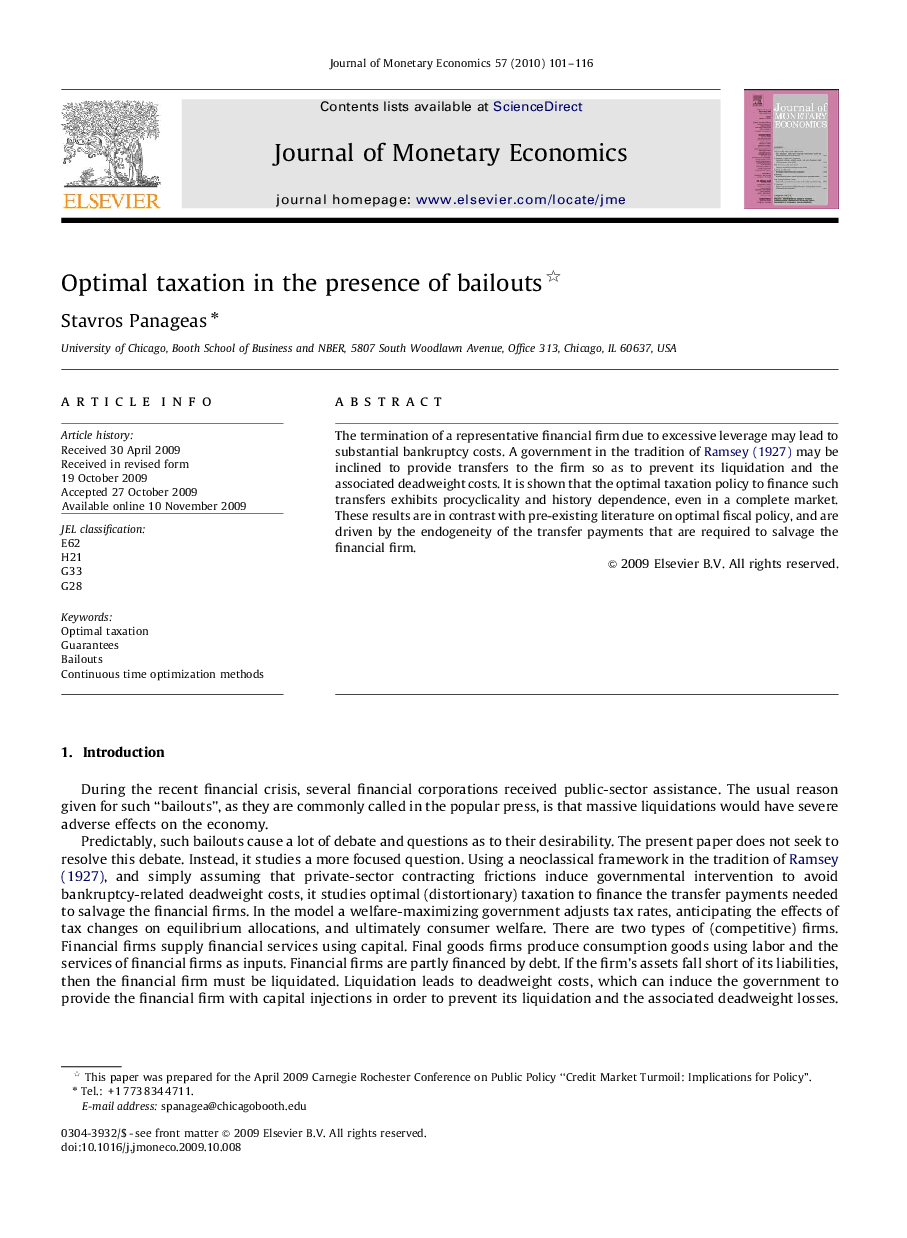| Article ID | Journal | Published Year | Pages | File Type |
|---|---|---|---|---|
| 967065 | Journal of Monetary Economics | 2010 | 16 Pages |
Abstract
The termination of a representative financial firm due to excessive leverage may lead to substantial bankruptcy costs. A government in the tradition of Ramsey (1927) may be inclined to provide transfers to the firm so as to prevent its liquidation and the associated deadweight costs. It is shown that the optimal taxation policy to finance such transfers exhibits procyclicality and history dependence, even in a complete market. These results are in contrast with pre-existing literature on optimal fiscal policy, and are driven by the endogeneity of the transfer payments that are required to salvage the financial firm.
Related Topics
Social Sciences and Humanities
Economics, Econometrics and Finance
Economics and Econometrics
Authors
Stavros Panageas,
